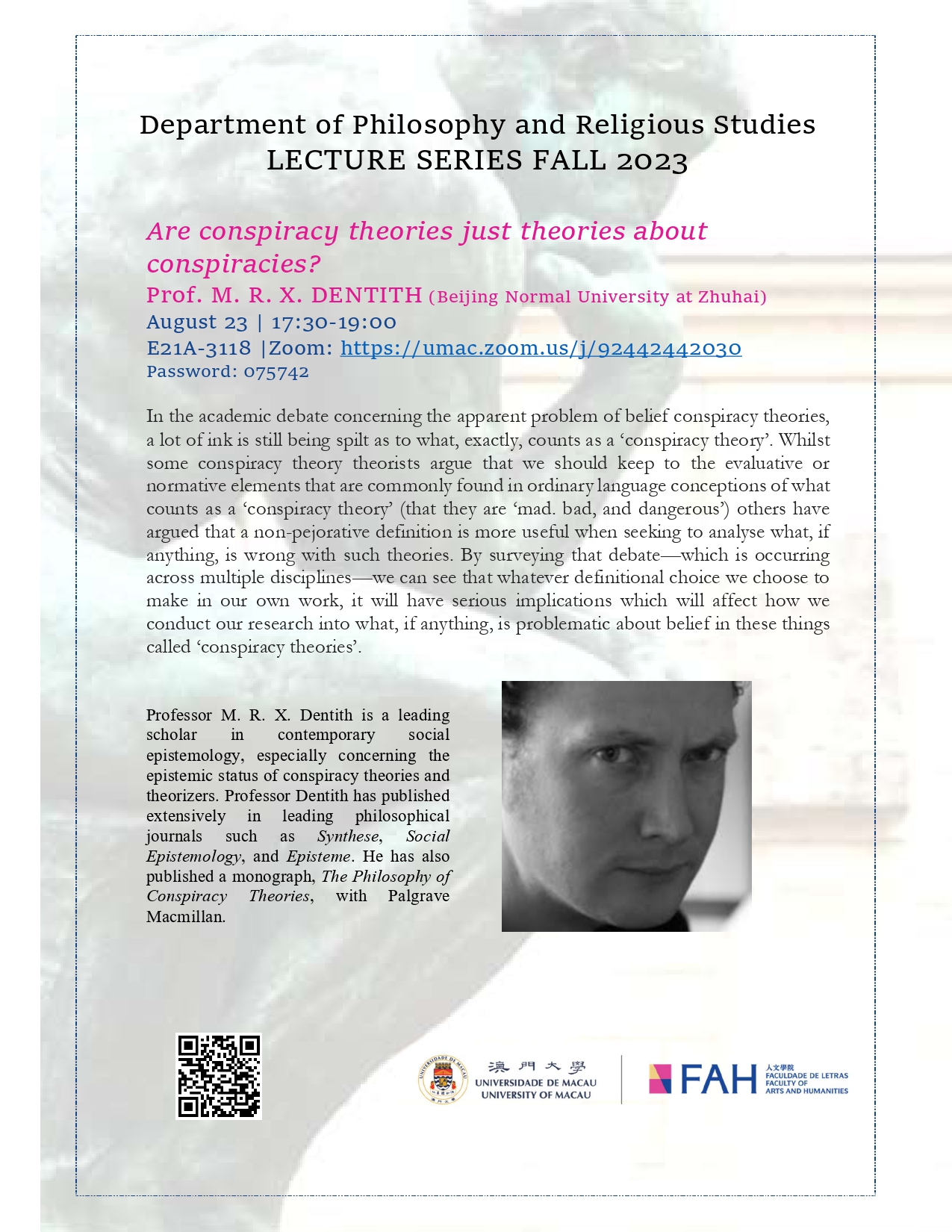

FAH/DPHIL Lecture Series – “Are conspiracy theories just theories about conspiracies?” by Prof. M. R. X. Dentith, Beijing Normal University at Zhuhai
2023-08-23 @ 5:30 pm ~ 7:00 pm
Zoom: https://umac.zoom.us/j/92442442030
Password: 075742
Abstract
In the academic debate concerning the apparent problem of belief conspiracy theories, a lot of ink is still being spilt as to what, exactly, counts as a ‘conspiracy theory’. Whilst some conspiracy theory theorists argue that we should keep to the evaluative or normative elements that are commonly found in ordinary language conceptions of what counts as a ‘conspiracy theory’ (that they are ‘mad. bad, and dangerous’) others have argued that a non-pejorative definition is more useful when seeking to analyse what, if anything, is wrong with such theories. By surveying that debate—which is occurring across multiple disciplines—we can see that whatever definitional choice we choose to make in our own work, it will have serious implications which will affect how we conduct our research into what, if anything, is problematic about belief in these things called ‘conspiracy theories’.
Bio
Professor M. R. X. Dentith is a leading scholar in contemporary social epistemology, especially concerning the epistemic status of conspiracy theories and theorizers. Professor Dentith has published extensively in leading philosophical journals such as Synthese, Social Epistemology, and Episteme. He has also published a monograph, The Philosophy of Conspiracy Theories, with Palgrave Macmillan.

